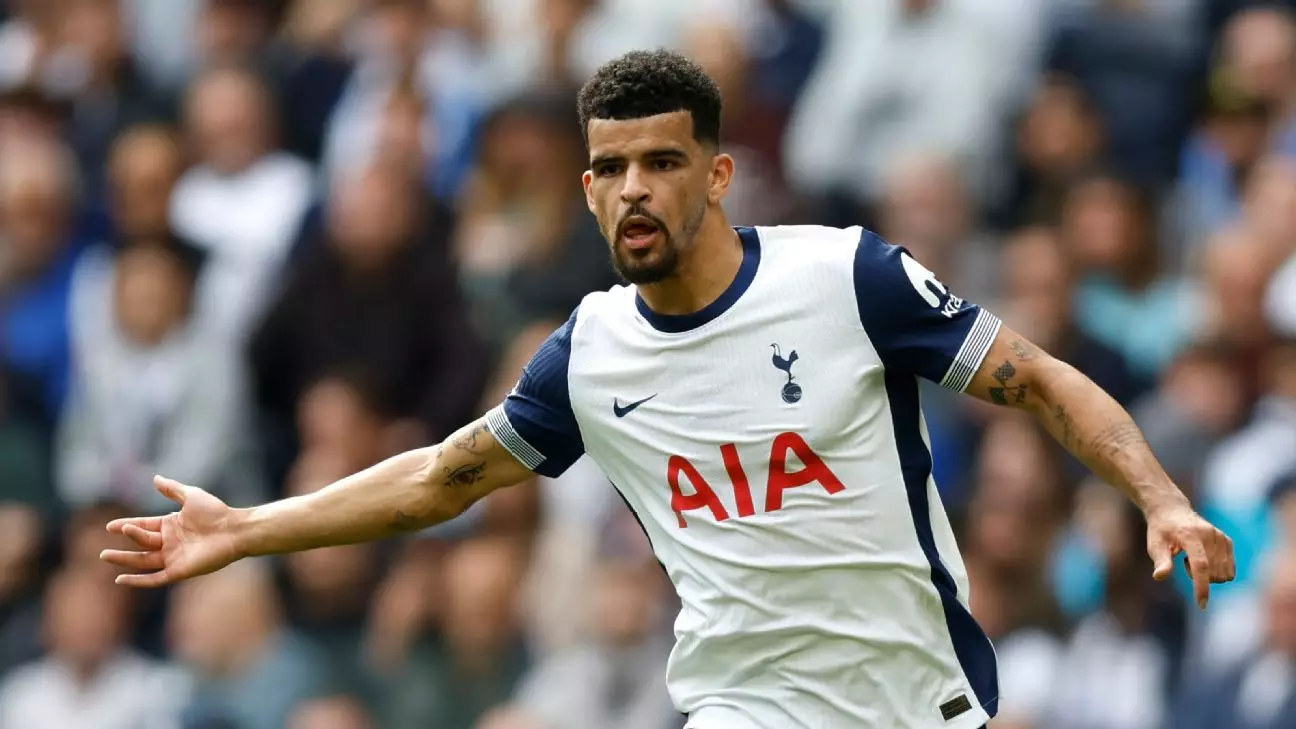The world of professional football is an arena rife with scrutiny and judgment, particularly when it comes to new signings and their initial performances. Recently, Tottenham Hotspur’s head coach, Ange Postecoglou, has urged fans and pundits alike to exhibit patience regarding Dominic Solanke’s progress following his high-profile transfer from Bournemouth. The circumstances surrounding Solanke’s arrival, marked by injury and early setbacks, bring to light the greater implications of expectations versus reality in the sporting environment.
Dominic Solanke’s move to Tottenham, which made him the club’s record signing at £65 million ($86 million), instantly amplified the spotlight on his ability to deliver. However, what often goes unnoticed are the unique challenges that new players face, especially when they encounter injury shortly after joining a new club. In Solanke’s case, an ankle injury during his debut at Leicester City severely limited his contributions, making just three appearances by the time he faced criticism for not scoring. The expectation for immediate results creates a scenario where even slight missteps are magnified, setting the stage for an avalanche of premature judgments.
Postecoglou highlighted the previously unseen intricacies of judging a player’s potential based solely on limited appearances. He articulated a critical reminder that the assessment of a player’s impact cannot be concluded in mere weeks. After all, football is a sport where adaptation both on and off the pitch can take time. For Solanke, stepping into the Spurs environment requires not only physical adjustments but also psychological acclimatization amid the pressure to perform.
The financial implications tied to high-profile transfers can skew perceptions significantly. Fans and commentators often equate a player’s wage and transfer fee with immediate results and contributions. However, Postecoglou’s comments remind us that these figures do not inherently determine a player’s success or compatibility within a team. He emphasized the importance of not rushing to judgment and instead encouraged observers to keep a broader perspective on Solanke’s potential.
It’s essential to appreciate that football players are not merely assets but human beings navigating the complex dynamics of team environments, pressure, and personal challenges. Solanke’s early phases with Spurs, marked by injury, are far from indicative of his future contributions. Pressure mounts when fans expect immediate gratification; however, this can lead to overlooking the potential for growth in players who may need time to find their footing.
Ange Postecoglou’s call for patience extends beyond the players and encapsulates the relationship between management and fans. His acknowledgment of the quick reactions from supporters, often rooted in frustration rather than reasoned analysis, sheds light on a broader issue regarding modern football culture. In an age where social media brings instantaneous feedback, the tendency to rush to judgment becomes even more pronounced.
Criticism faced by Postecoglou regarding Tottenham’s performance early in the season, including the backlash over substitutions, emphasizes the intense scrutiny managers endure. Yet, Postecoglou maintains a steadfast focus on long-term objectives, ensuring that his vision for the football club doesn’t waver under external pressure. He rightly points out that a clear and reasoned understanding of the team’s direction is essential, acknowledging the inevitabilities of both triumph and adversity that accompany any sporting venture.
Dominic Solanke’s journey at Tottenham Hotspur encapsulates the delicate balance between expectations and performance in professional sports. As fans and analysts alike often fall prey to impulsive assessments, the narrative should shift towards understanding the nuances of individual situations, particularly for new signings dealing with the added weight of expectations. Ange Postecoglou’s call for reasoned assessments and a greater sense of perspective is a crucial reminder of the complexities inherent in football.
In the end, embracing patience not only fosters a healthier environment for players like Solanke to thrive but also encourages a more thoughtful approach to football commentary—one that prioritizes understanding and development over snap judgments. As the season unfolds, the ability to extend compassion and time to players who are still adapting will prove invaluable, both for the individuals involved and for the teams they represent.

Leave a Reply